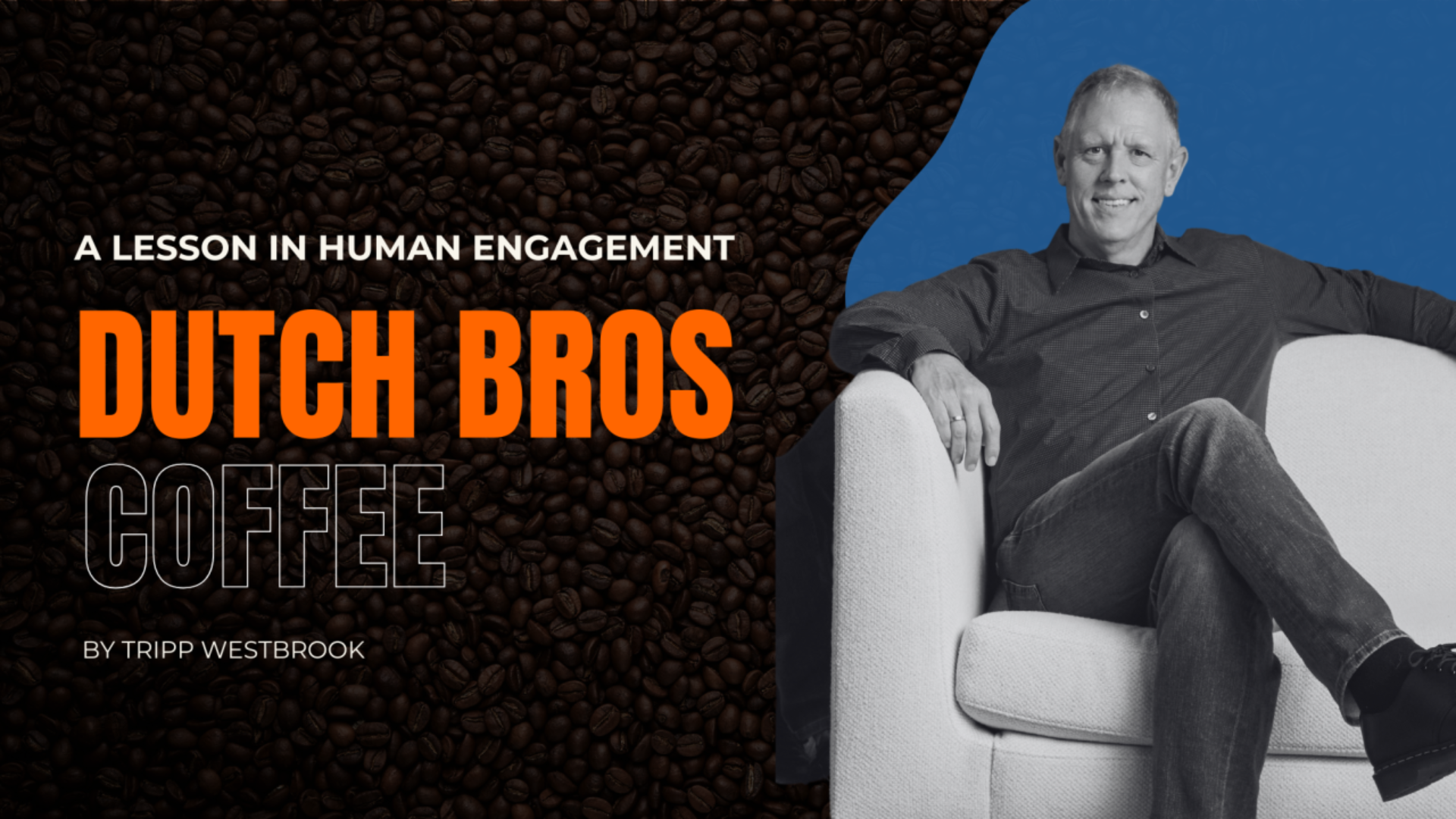Commuting in Dallas is, by most standards, a nightmare. But the silver lining is that it gives me time to think. One recent morning when the traffic gods gifted me an inordinate amount of thinking time, I was forced to grab my cuppa Joe on the go at the Dutch Bros near my office. That’s when it struck me that the concept of a drive-thru coffee shop itself can be a bit of a paradox. By design, it should be about speed and efficiency—a quick transaction between car window and coffee window. Yet watching Dutch Bros rapidly expand across Texas (142 locations and counting), I’m seeing the company using drive-thrus to deliver coffee as a social connector, a concept that had originally been promised by Starbucks.
After Dutch Bros crossed the 900-store milestone in June, they proved that scaling doesn’t have to come at the expense of core values. While Starbucks drifted toward prioritizing efficiency, Dutch Bros bet their Pacific Northwest coffee heritage—built on human engagement—would translate across state lines. They were right. Look, I’m a fan because this approach aligns with our values at Firehouse and they are doing good business in our backyard. Dutch Bros’ evolution—from coffee cart to drive-thru and now indoor seating at their newer locations—shows authentic community building as a growth strategy.
Let’s take a look at where Dutch Bros came from and where they’re going, because there’s lessons here for all brands about earning the right to break the rules.
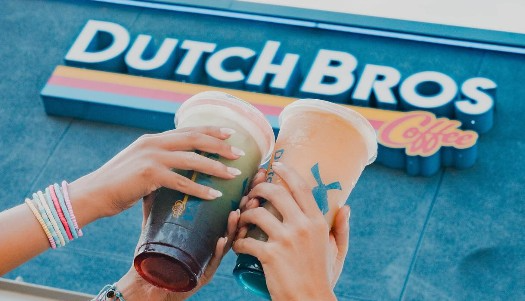
The Product is Love
“We’re rocking music, we’re having fun, we’re building coffees and building relationships. The product’s love, man.” Co-founder Travis Boersma
Since 1992, when brothers Dane and Travis Boersma left dairy farming with $12,050 and an espresso machine in Grants Pass, Oregon, Dutch Bros has put relationships right at the center of their growth strategy. Their “punk-rock coffee culture” uses music, energy, and love to create an authentic alternative to coffee chain efficiency.
“Our rate of growth is predicated on the people that we have that are ready to rock,” Travis Boersma told the EntreLeadership podcast. “This thing is way bigger than coffee. The thing that really fuels the whole thing by miles, and is a differentiator, is the culture. People come for great product, they come back for the people.”
Dutch Bros calls their customer-facing staff “Broistas” and provides a rigorous training program, including a 91-question test, not just to ensure a consistent product, but to inculcate staff into the “Dutch Love” culture. When the President of Operations, Sumi Ghosh, joined after 12 years at Starbucks, he was the first person in that position who didn’t start as a Broista working their way through the organization.
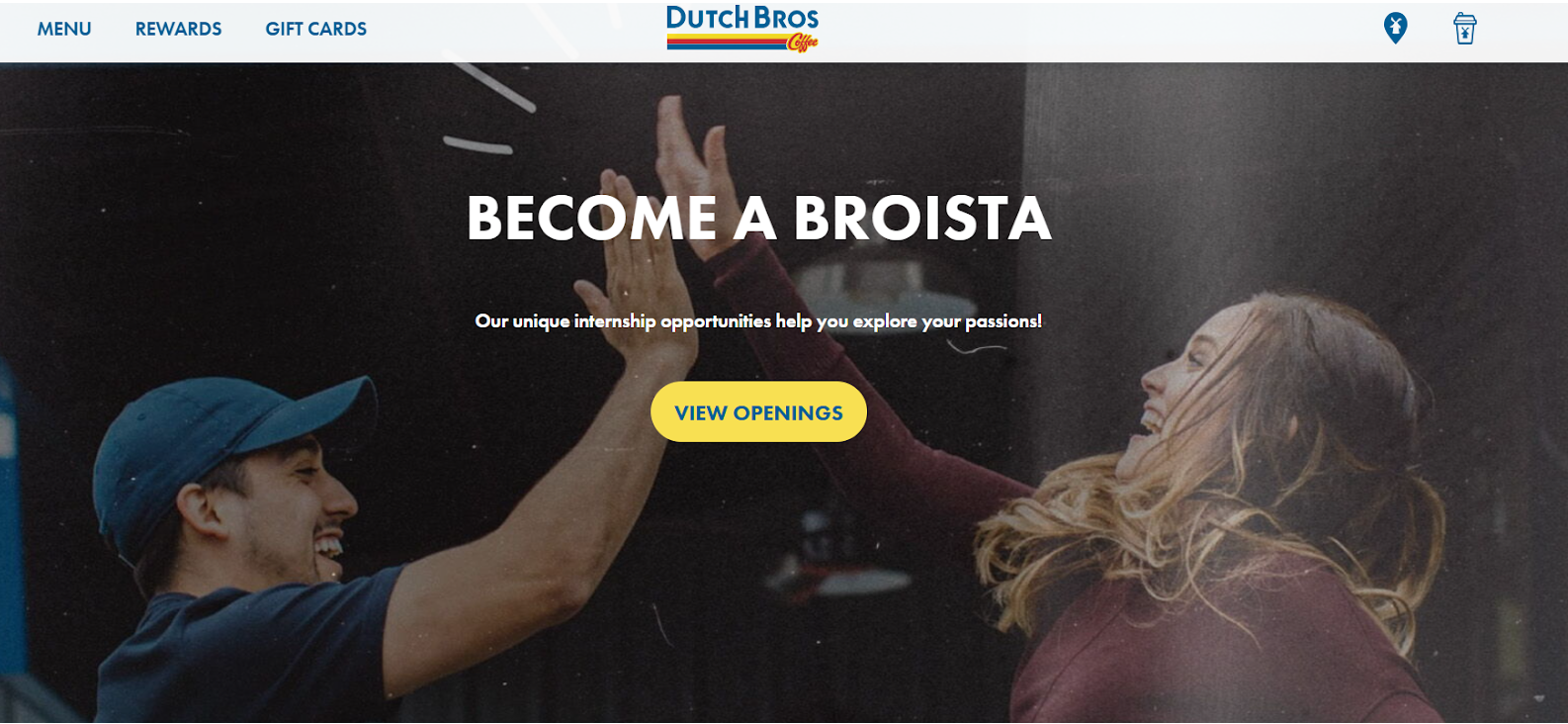
“They’ve lived it, received it, and are responsible for making it happen. The environment in a shop is unlike anything I’ve experienced,” Ghosh toldNation’s Restaurant News. Results validate this people-centered approach. The Dutch Bros loyalty program accounts for 70% of all transactions, with $2 million-plus average unit volumes.
By 2008, Dutch Bros had formalized their values through an internal franchising model requiring three years of company experience before ownership—resulting in a 97% continuity rate. In fact, the company was so committed to upholding their values that they even bought out franchisees who failed to live up to them or meet customer service standards.
So how is it even possible to communicate love with the transactional nature of drive-thru?
We know happy employees provide better service, but Dutch Bros smashes down the walls separating staff and the public. In 2016, Broistas spontaneously stopped operations to pray with a grieving widow in their Vancouver drive-thru. In 2019, employees rallied together to fund a colleague’s college tuition. Both became viral moments precisely because they were not scripted.
More recently, Dutch Bros earned the #10 spot on Forbes’ Best Customer Service 2024 list and #2 in the People category. As one customer told Forbes: “Love the coffee, love the employees. Every time I go, I feel like a VIP.”
“When we have this pipeline of people that are passionate, that really have proven themselves in operational excellence, as cultural cultivators, that’s the thing that really separates [them],” Boersma said. To create people as “cultural cultivators,” Dutch Bros has become a case study in employment empowerment that goes way beyond falling in line with the zeitgeist, but leading by example.
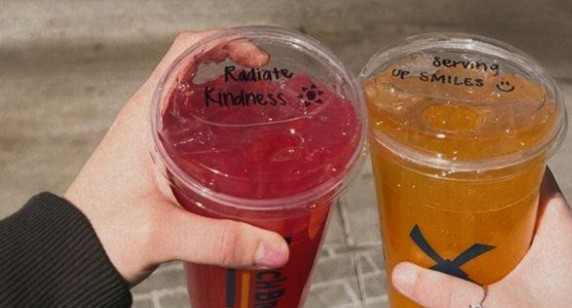
The Stepping Stone
“What happens when you come to work for Dutch is you get to develop skills and strengths that are going to serve you in your life wherever you may go. It’s a stepping stone.” Travis Boersma
Creating a business model that other companies can follow is an explicit goal of Dutch Bros that may seem to fly in the face of conventional business wisdom. They want to demonstrate that building a positive work culture is a win-win for everyone — and even if people take the skills developed at Dutch Bros elsewhere, it only grows the love.
In fact, this approach becomes its own form of branding for the Dutch Bros way. Happiness is infectious and the company backs it all up with real commitments. Staff receive $5,250 per year in education benefits after their first year, 16 paid volunteer hours for community involvement, and a clear developmental pathway:
Step 1: Broista → Step 2: Shift Leader → Step 3: Shop Lead → Step 4: Shop Manager → Step 5: Regional Shop Manager → Step 6: Regional Operator
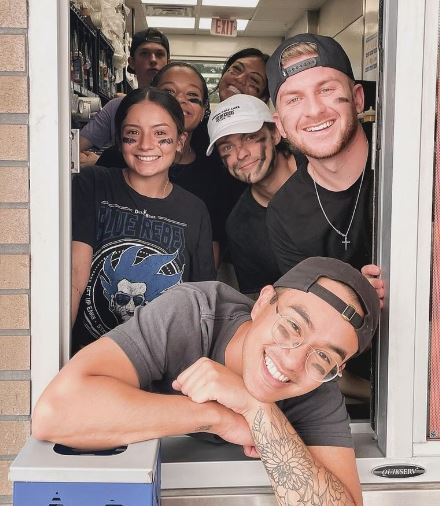
The mistake businesses make, Boersma says, is thinking they have to hold on to their people forever. He takes the opposite view. “I think you’ve got to help people design their life and live their dream,” he says.
To be clear, Dutch Bros are not too worried about the competition with good reason: They have nearly doubled in size since September 2021 with 81 openings in the first half of 2024 alone—their 12th straight quarter of over 30 unit openings. Much of that growth has come in Texas. According to QSR Magazine, these results followed the decision to focus on higher average unit volume (AUV) shops, slower infill rates, and the removal of locations that didn’t meet Dutch Bros’ new investment criteria.
Subsequently, Dutch Bros posted $325 million in Q2 revenues, a 30% year-over-year increase. “As we enter big new markets like Florida, we are using all of that data to really refine our approach so that we can bring up the average AUV of a unit,” CEO Christine Barone told the magazine.
Climbing the Everest of Growth
“We've climbed some mountains, but the one that we've got ahead is Mount Everest, and I want to do that with Sherpas.”Travis Boersma
The result of Dutch Bros’ attention to building culture is a vibrant, high-energy approach to service that feels more like a social experience. People look forward to serving the customer and it’s obvious. The company is also active on social media, often spotlighting customer stories, Broista profiles, and encouraging community involvement. Through regular “give-back” days, Dutch Bros donates a portion of proceeds to local causes.
For a brand in the relationship business, the next summit is in sight—1,000 stores by the first half of 2025—with the long-term target of 4,000 shops their Everest. Like any successful climb, it will be all about the team and the approach. Their “Sherpas” include bringing in seasoned talent to lead a strategy that balances data-driven growth with cultural connection—from rewards programs to mobile ordering.
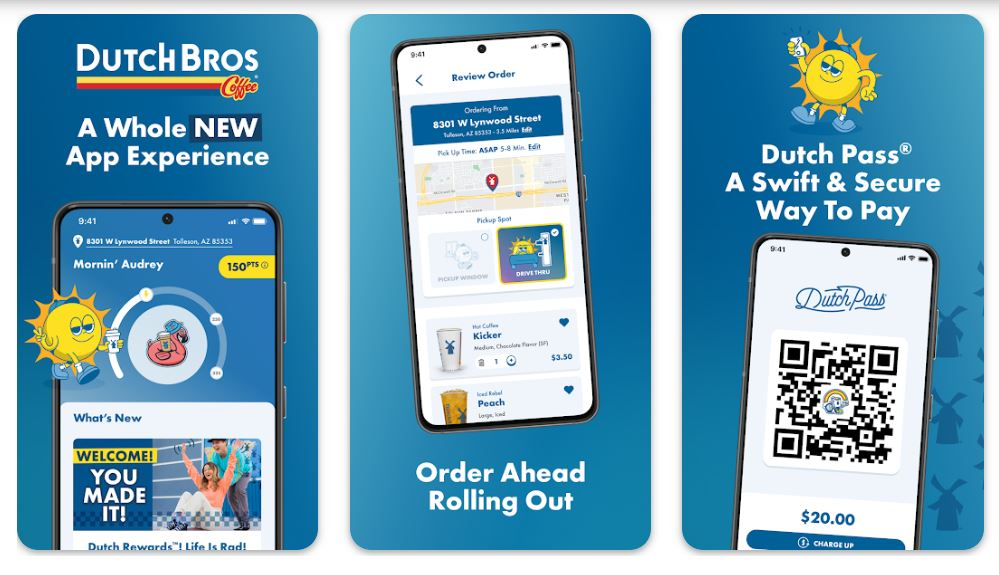
As Barone notes: “We’re still small enough that we can actually move quickly and get things into market as we see cool new trends happening.” Maybe it’s not so much that Dutch Bros are breaking the rules, but creating new ones that set the standard for employee ownership and having a shared vision. “People are people, and at the end of the day, man, love reigns,” says Boersma. “So if you’re there for people and you have that servant mentality, you’re really caring, they’re on fire.”
I look forward to seeing the happy faces at my local Dutch Bros drive-thru in Addison again soon. In the meantime, thanks to the executive team for showing us how to scale while staying true to the values that matter.

